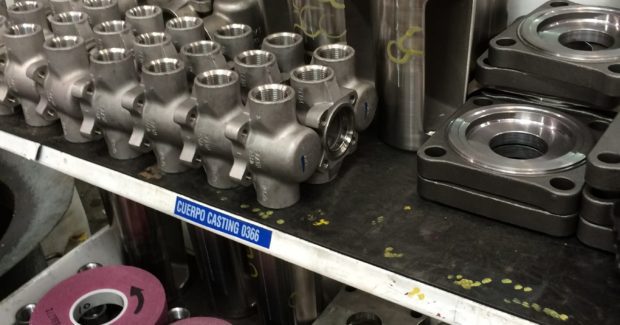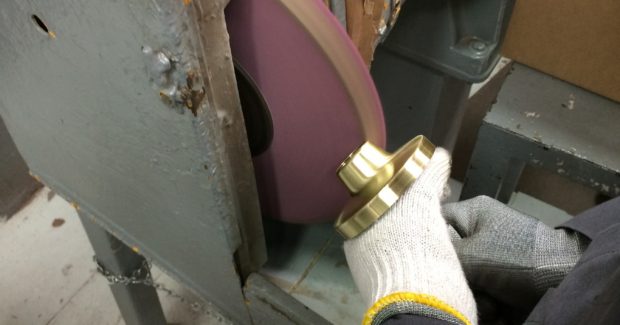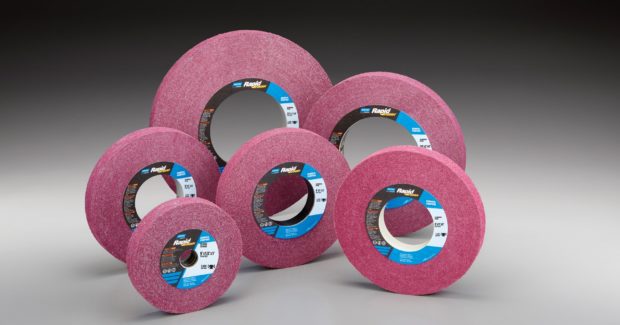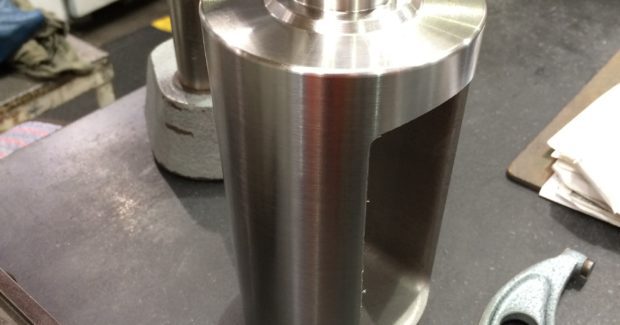Cutting Through the Confusion with Non-Woven Convolute Wheels
The complicated array of convolute wheels being used on the production floor can confuse operators who find it difficult to select the right one for their specific deburring or finishing job. But now a new system simplifies all of that, reducing lost time in selection and downtime due to rework, increasing cost savings through higher productivity.
Posted: February 16, 2017
Non-woven convolute wheels have long been a standard used to complete most deburring, blending, and finishing applications in metal fabrication. Formed by wrapping fiber mesh impregnated with aluminum oxide or silicon carbide abrasive grains and resin around a standard size core, these wheels are pliable, conformable, and able to reach into the most intricate regions of the workpiece. In today’s market, many abrasive manufacturers provide such a wide array of convolute products to the industry that the offering often becomes complicated and/or too generic, causing confusion on the production floor, where every wheel looks the same and users have a difficult time selecting the appropriate product for their deburring or finishing operations. As a result, operators end up with a less than ideal product finish , culminating in lost time and lower productivity.
In order to address this critical issue, we decided to invest into research and development to simplify the convolute wheel selection task. Most industrial grinding applications can be summarized into three different categories: deburring, light deburring/blending, and finishing. In the deburring step, the user removes excess amounts of metal, burrs, weld splatter, casting parting lines, and sharp edges from the parts. In the light deburring/blending step, deep scratches or surface irregularities are removed and a uniform surface is produced. Lastly, on the finishing step, the part is worked to achieve a smooth and reflective surface, where the imparted finish is produced according to the end user’s requirements.
To meet these needs through a simplified product offering, we created the new Norton Rapid Finish convolute wheel line that condenses the array of designs into three simple tiers: Heavy Deburring, General Purpose, and Final Finish. Each tier is designed to tackle the corresponding grinding step. In addition to simplified, targeted selection, this new product line also employs an innovative color-coded system to differentiate the tiers and applications: brown color wheels are used for Heavy Deburring jobs involving heavy duty deburring tasks, maroon wheels are used for General Purpose applications that involve hybrid blending/finishing work, and green wheels are used for Final Finish applications.
This color-coding technique contrasts greatly with the generic gray color offered by most abrasive manufacturers in their convolute wheel lines that can add confusion to the abrasive selection process and also increase the potential to mar parts if an incorrect gray wheel is selected. A common issue on the production floor is differentiating between aluminum oxide and silicon carbide wheels. Since most convolute wheels are gray, many operators may have a difficult time identifying which product is at their work station. If work instructions call for a particular grain type, the operator may be unable to differentiate between the seemingly indistinguishable wheels. Again, this poses a problem because certain abrasive grains interact more efficiently with a particular set of metals. If used improperly, the operator runs the risk of generating imperfections and/or decreasing productivity.
In order to make things simpler and address this abrasive grain-type selection issue, we also color-coded the fiberglass cores on Norton Rapid Finish convolute wheels: white cores are present on the aluminum oxide and black cores for the silicon carbide wheels. This, in combination with our proprietary wheel color-coded offering, drastically lowers the chance of busy shops making a selection mistake.
Moreover, many abrasive wheel manufacturers have typically relied on old, outdated resin bond systems to manufacture their products. Since significant heat is generated in the grinding/finishing operation, old resin systems often led to the creation of “marks” or “stains” on the part. Sometimes the chemistry of the resin was such that, given enough work zone heat build-up, resin transfers would occur between the abrasive wheel and the work piece. Although this is acceptable for some grinding operations, such as deburring, the finishing requirements were almost completely disregarded. This meant operators spent considerable amounts of time reworking parts to the required finish specifications.
To address this, our advanced chemistry technology has created a proprietary Clean Bond® resin system that ensures smear-free (or stain-free) finishing operations and, at the same time, provides equal or longer life versus standard competitive products, resulting in less downtime spent on reworking parts and increased annual savings in costs through higher productivity. This new resin system can also be used safely in aerospace, automotive, stainless steel and aluminum markets, where heavy element trace contaminants are an issue because the wheels are free of undesired but common elements.








